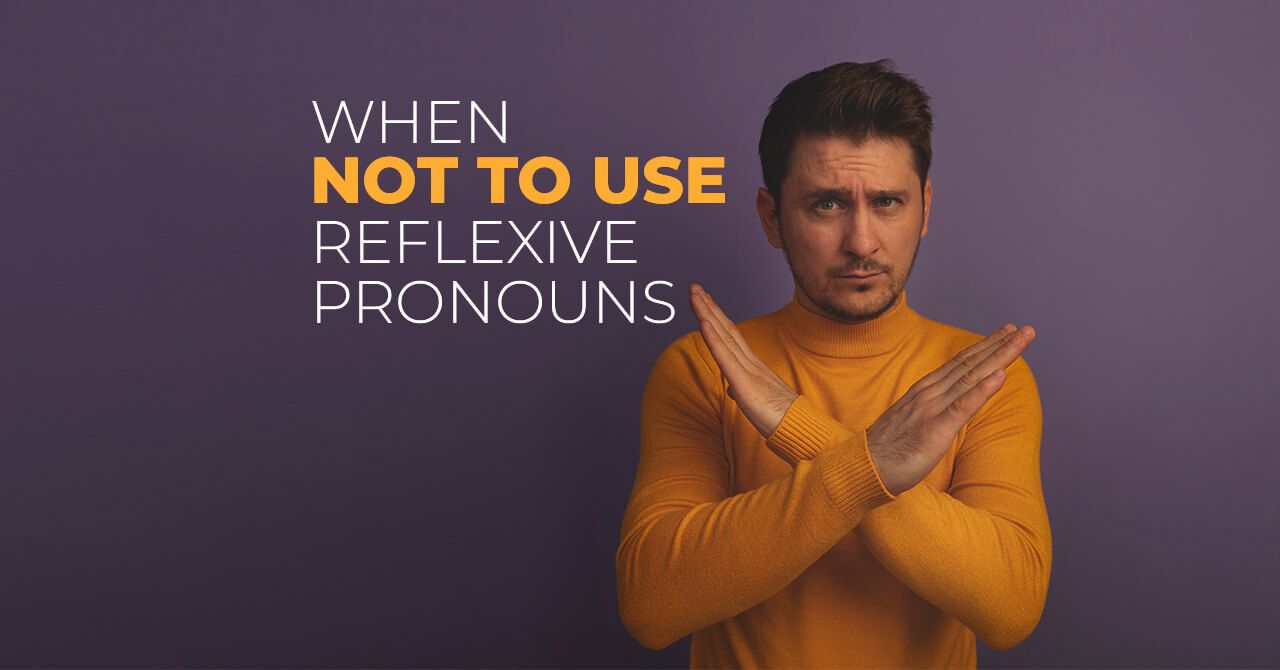
When You Shouldn’t Use Reflexive Pronouns
In this article, you will find info about the main ways when we MUSTN’T use reflexive pronouns “myself,” “yourself” and so on in English.
Each language has its features that cannot be ignored because then a non-native speaker can be considered ignorant. Hence, in this article, you will find info about the main ways when we MUSTN’T use reflexive pronouns “myself,” “yourself” and so on in English.
First of all, let’s categorize our topic. “Yourself,” “myself,” “himself,” “herself,” “themselves,” “ourselves,” and “itself” are the words that belong to reflexive pronouns (these words refer back to a person or thing who performs some actions on themselves).
For example:
I teach myself how to drive a car.
The person who teaches and who learns is the same person.
So, let’s dive into forbidden places. We don’t use these words:
1. When we speak about location or places
For instance, if you want to say that something or someone is in front of you or behind you, never say “behind MYSELF.” Let me give you a hint on how to realize that. “Self” means a person’s being that distinguishes them from others. That’s like our ego, the inner person, but not a physical one. And some items can be behind our physical bodies, not souls, that’s why you shouldn’t use these words together.
I SAY: Who is there behind you?
I DON’T SAY: Who is there behind yourself?
2. When we speak about our feelings
“I feel myself”—forget this phrase once and forever, please! You cannot feel your ego. If you want to express your feelings, just say, “I feel well\unwell,” etc.
I SAY: I feel great\I’m great.
I DON’T SAY: I feel myself great.
Interesting fact: “MESELF” exists.
Probably, once or twice, it happened to you to hear how someone said “meself” instead of “myself.” And, yup, that person wasn’t crazy or illiterate. He or she was just a representative of some kind of a specific dialect. It happens, so it’s okay.
Well, I hope that this article helped you a lot! Thanks for reading!
I'm an English teacher who always helps my students find their weakness and change it into their strengths. I can be your teacher and also your best friend.

